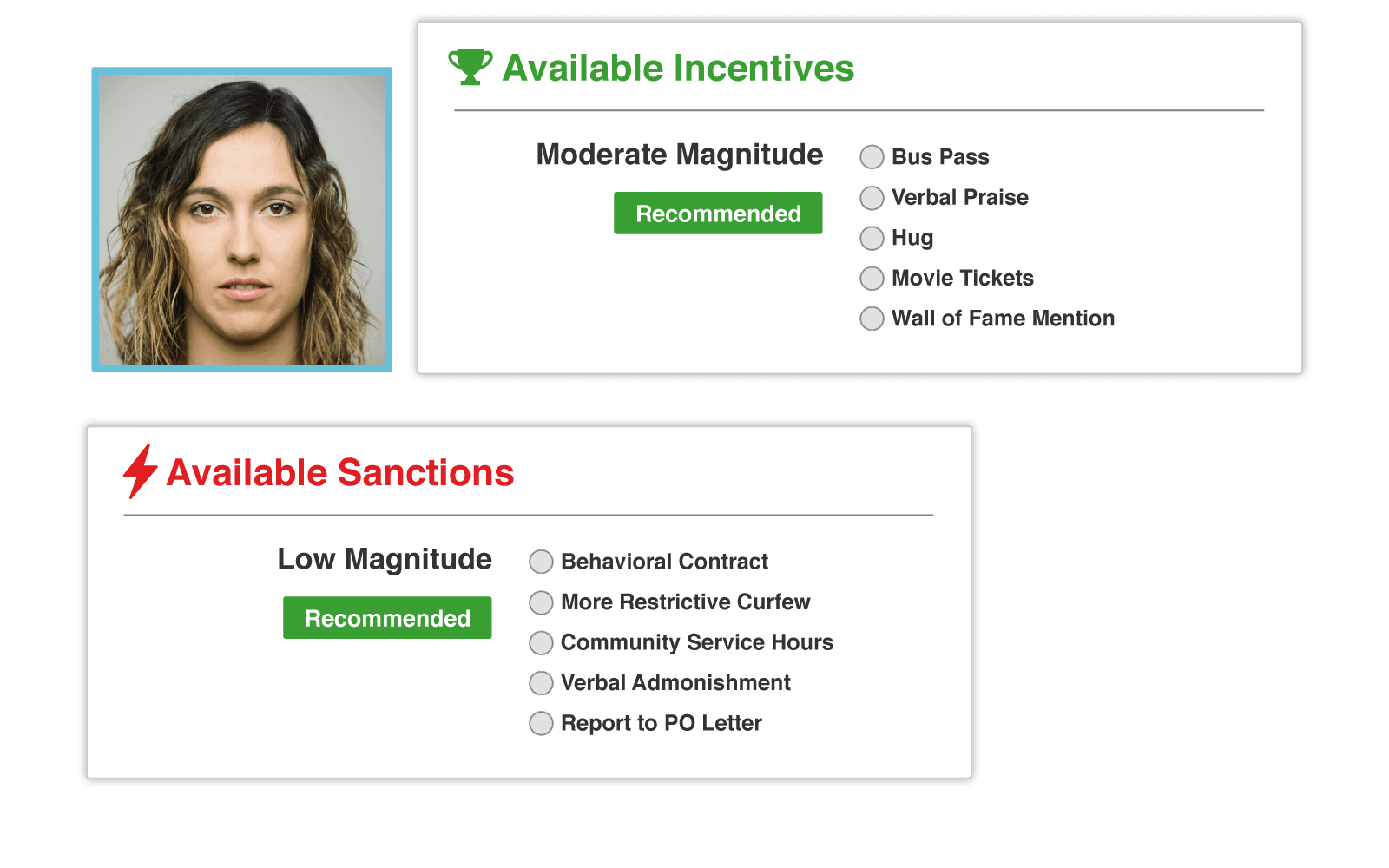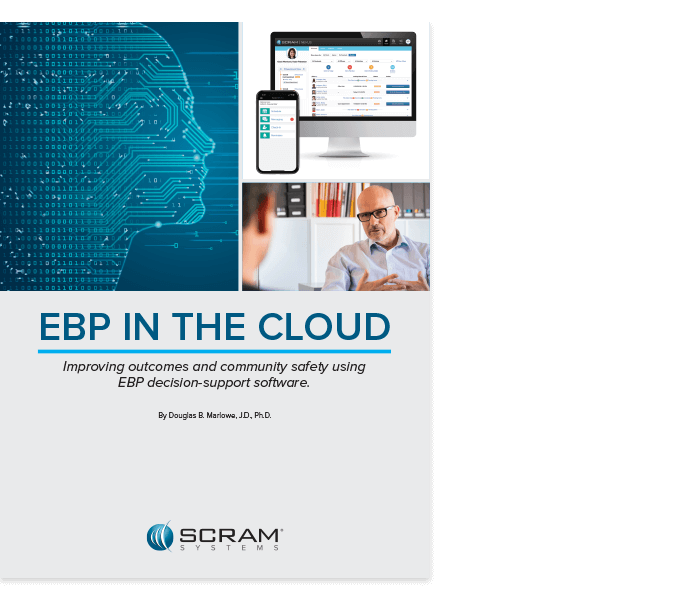How Technology Can Automate Swift and Certain Rewards and Sanction Recommendations
The most influential factors in behavior modification programs are the certainty and swiftness of incentives and sanctions delivered. The more consistently parolees and probationers receive rewards for their accomplishments and sanctions for their infractions, and the faster those consequences are administered, the better the outcomes.
SCRAM Nexus is the first-ever decision support software that compiles a client’s behavioral data and automatically recommends evidence-based responses so supervision officers can assign appropriate incentives and sanctions swiftly and reliably.
Swift and Certain Responses are Integral to Positive Outcomes
In order for successful behavior modification to happen, clients must receive rewards and sanctions in a timely and consistent manner. Many corrections programs irregularly deliver consequences after prolonged or delayed intervals, which can lead to negative behavior outcomes and even criminal recidivism. Additionally, these inconsistent sanctions and incentives are at the supervision officer’s discretion, which means two similar clients may receive a vastly different treatment experience.
Nexus helps officers assign appropriate evidence-based responses in a timely manner to produce better program and client outcomes. This means supervision officers can focus on delivering consequences swiftly, instead of spending time manually deciphering behavioral data to determine a course of action.

Magnitude of Responses Matters
Not only is the swiftness of delivering responses integral to successful behavior modification, but the magnitude of those incentives and sanctions plays a role in client outcomes. There is a common misconception among many criminal justice professionals that incentives and sanctions work best at higher magnitudes. However, the better the rewards and sanctions match the behavior, the higher the chance of client rehabilitation and success.
For example, low and moderate incentives—like frequent verbal praise, certificates of recognition, transportation passes, and gift cards—can help increase positive outcomes. Sanctions are also shown to be the most effective in the intermediate range. Penalties too weak in magnitude could cause a client to become accustomed and less responsive to punishment, while penalties too severe can lead to avoidance, resentment, and recidivism.
Additionally, significantly better outcomes are achieved when sanctions gradually increase in magnitude over consecutive infractions, allowing clients a chance to meet their increasing responsibilities as programs and counseling services persist.
Nexus helps take the judgment and guesswork out of choosing the appropriate magnitude of responses by using algorithms that combine evidence-based practices with departmental policies, making it easier than ever for officers to assign the most effective incentives and sanctions.


